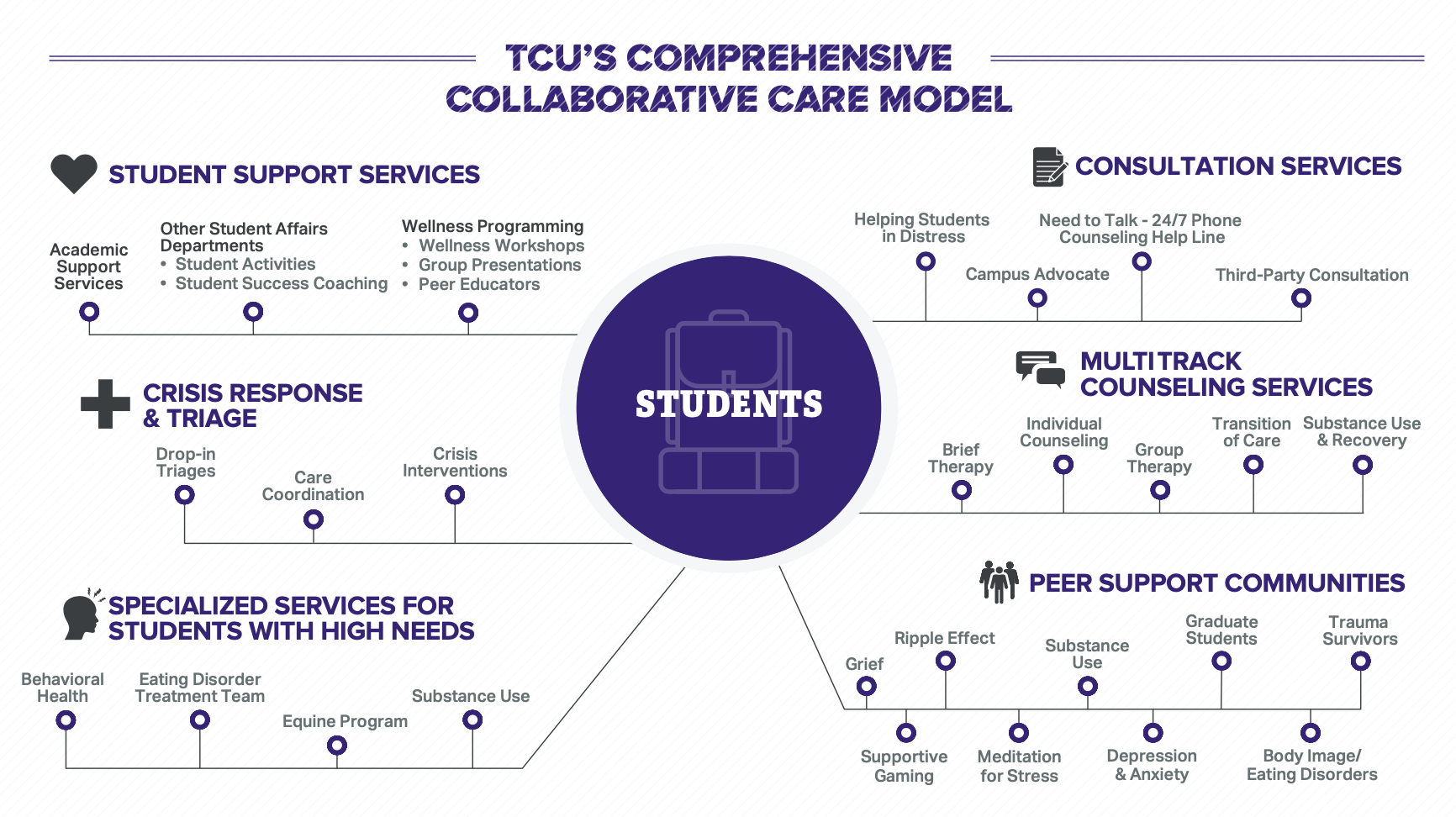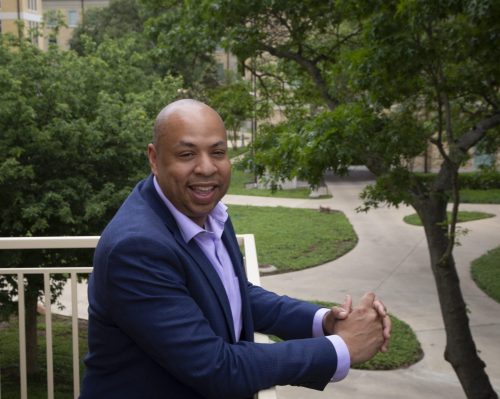Comprehensive, Collaborative Care
At TCU, addressing student mental health is a campuswide priority.

Courtesy of TCU Marketing and Communication
Comprehensive, Collaborative Care
At TCU, addressing student mental health is a campuswide priority.
Eric Wood saw an increasing demand for mental health services among college students and imagined a new method for meeting their differing needs with a limited professional staff.
The Comprehensive Collaborative Care Model, developed by Wood as TCU’s director of counseling and mental health, is now the standard to follow in higher education. The model was built on three key observations:

Eric Wood, TCU’s director of counseling and mental health, developed the Comprehensive Collaborative Care Model, and it has become the standard to follow in higher education. Photo by Joyce Marshall
• Twenty percent of students seeking mental health treatment take up about half of all campus counseling center appointments.
• The majority of college counseling center clients have previously received services.
• Responding to students in crisis contributes to burnout among already overburdened counselors.
His solution leans into collaborating with community partners, peer support groups and a dedicated professional counseling team to help students thrive during college.
Students with basic needs can utilize free, brief campus counseling sessions and get connected to a variety of peer support groups, from Dungeons & Dragons game nights to communities focused on grief or body image issues. Those are modeled after recovery groups and intended to build community.
TCU secured a grant from the U.S. Department of Health and Human Services to fund a crisis and triage team, staffed by therapists with no scheduled caseload. For high-need students, such as those considering self-harm or coping with trauma, TCU partners with off-campus facilities to provide on-campus therapy.
In the Comprehensive Collaborative Care Model, students find engagement and support on and off campus — from the Student Activities office and pastoral counselors to student success coaches, professional therapists and one another. “We’re asking families to send their student here, to live here, sometimes from thousands of miles away,” Wood said.
“We’re charging ourselves with the care of the student. We have to support them.”

Your comments are welcome
Comments
Related reading:
Research + Discovery
On Board for Recovery
TCU’s Mobile Health Unit helps substance users get on the road to health and hope.
Research + Discovery
The Dynamics of Downsizing
Gretchen Ross finds that messiness can be a plus when decluttering.
Research + Discovery
Digital Safety Net
John T. Harvey recommends creating a Federal Cyber Insurance Corp., which would protect the U.S. from ransomware and other online crimes.